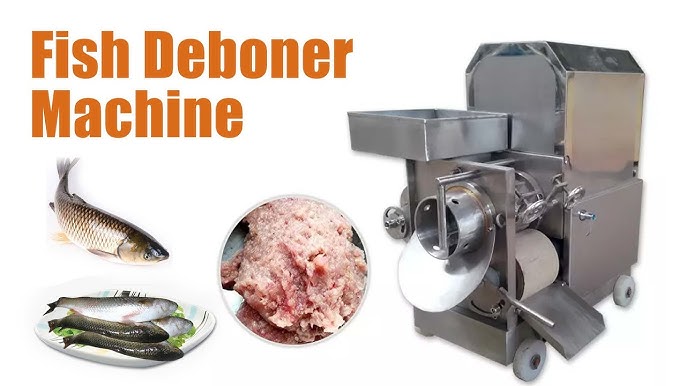10 years of experience as a food machinery equipment manufacturer
10 years of experience as a food machinery equipment manufacturer
Nigeria Fish Meat Separator: An Overview

The fish meat separator is a specialized machine designed to efficiently separate fish meat from bones, skin, and other unwanted parts. This technology plays a crucial role in the fish processing industry, allowing for the maximization of yield and the creation of various value-added products. In Nigeria, where fish is a significant source of protein and income, the adoption of fish meat separators is becoming increasingly relevant for enhancing the efficiency and profitability of the seafood sector.
Fish meat separators typically employ a rotating drum or belt system with perforations. Fish are fed into the machine, and as they pass through, the soft meat is forced through the perforations, while the bones and skin remain on the outside. These waste products are then discharged separately. The resulting minced fish meat can be used to produce a wide range of products, including fish balls, fish cakes, fish sausages, and surimi.
The technology offers several advantages over manual separation methods. Firstly, it significantly increases the speed and efficiency of the process, allowing processors to handle larger volumes of fish in a shorter period. Secondly, it improves the yield of usable meat, reducing waste and maximizing the economic value of the raw material. Thirdly, it enhances the hygiene of the process, minimizing the risk of contamination and ensuring the quality and safety of the final product. Finally, it reduces labor costs associated with manual deboning and skinning.
In Nigeria, fish meat separators are finding applications in various areas of the seafood industry:
When selecting a fish meat separator, several factors should be taken into consideration:
Despite the potential benefits, the adoption of fish meat separators in Nigeria faces certain challenges. These include the initial investment cost of the machines, the availability of skilled technicians for maintenance and repair, and the need for adequate infrastructure, such as reliable electricity supply.
However, there are also significant opportunities for growth. The increasing demand for processed fish products in Nigeria, coupled with the government’s efforts to promote local fish production, creates a favorable environment for the adoption of fish meat separators. Furthermore, the development of local manufacturing and assembly capabilities could help to reduce the cost of these machines and make them more accessible to smaller processors.
Fish meat separators offer a valuable technology for enhancing the efficiency and profitability of the fish processing industry in Nigeria. By improving yield, reducing waste, and enhancing hygiene, these machines can contribute to the growth of the seafood sector and the provision of affordable and nutritious protein to the population. As the industry continues to develop, the adoption of fish meat separators is likely to become increasingly widespread.
